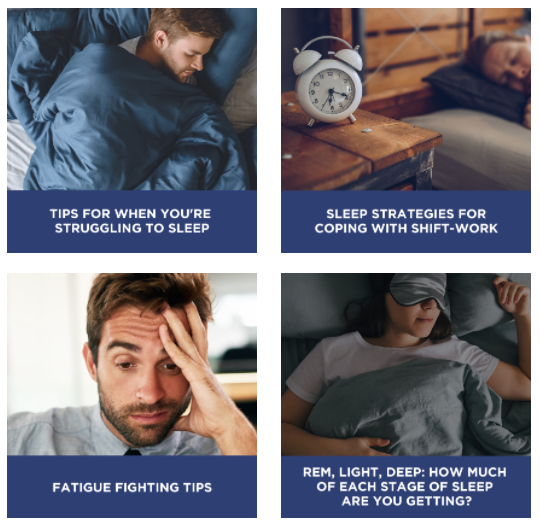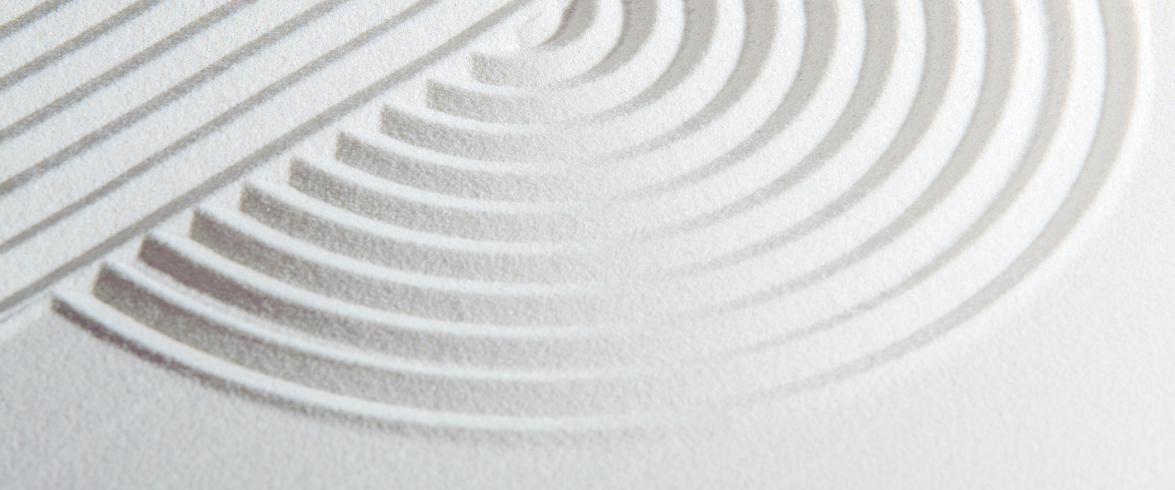Sleep researchers divide sleep into five stages—stages 1, 2, 3, and REM—but to keep things simple, our sleep will fall into three stages: light, deep, and REM. Each of these stages serve a different purpose, so understanding how much of each stage you spend per night can help you identify and address sleep-related issues. Below, a breakdown of what you need to know about each sleep stage.
This article is chosen from the resource section of GoodForYou. It's written by our Wellbeing Partner Synergy Health Ltd and we've re-produced their article in full below:
Light Sleep
Stage 1: “This is the sleep that’s a little more choppy, shallow, not restful,” says Michael Grandner, MD, director of the Sleep and Health Research Program at the University of Arizona in Tucson and a Fitbit sleep consultant. “But it’s usually just a quick transition, so you’re not in it for very long.
During stage one, “you’re still hearing things and have a sense of awareness,” says Fitbit sleep consultant Allison Siebern, PhD, consulting assistant professor at The Stanford Center for Sleep Sciences and Medicine and director of Sleep Health Integrative Program at the Veterans Affairs Medical Center in Fayetteville, NC. “Your brain has dipped into sleep but you don’t feel like you’re asleep.”
Stage 2: When people talk about light sleep, this is the stage they’re usually referring to. You’re asleep but can be easily awoken. That said, stage 2 sleep is not shallow, nor is it less important than other sleep stages. “Light sleep is very important because it takes up more than half of the night,” says Grandner. “It’s when your body processes memories and emotions and your metabolism regulates itself. So there’s a lot of body maintenance occurring during lighter stages of sleep.” Breathing and heart rate typically decrease slightly during this stage.
Deep Sleep
Stage 3: During deep sleep, you become less responsive to outside stimuli. Breathing slows and muscles relax; heart rate usually becomes more regular.
“Deep sleep is very much about the body,” says Grandner. “The thinking parts of the brain are largely offline. Your muscles are very relaxed. You’re not dreaming at all during this time. Your body is doing a lot of rebuilding and repairing.” Deep sleep is when your body secretes growth hormone, which is associated with cellular rebuilding and repair. According to Siebern, deep sleep has also been shown to help strengthen your immune system.
REM
“If deep sleep is about the body, REM is about the brain,” says Grandner. “The brain is very active during REM sleep, yet the body is very inactive. Actually it’s so inactive, you’re actively paralysed during REM sleep.”
REM is when most dreaming happens and your eyes move rapidly in different directions (hence the name). Heart rate increases and your breathing becomes more irregular.
REM is very important for emotion regulation and memory—you’re clearing the brain of things that aren’t needed, says Siebern. It’s also the peak of protein synthesis at the cellular level, which keeps many processes in the body working properly.
Understanding Sleep Cycles
Your body doesn’t just hit each sleep stage once a night, nor does it spend an equal amount of time in each of them. In fact, it cycles through all of these stages multiple times a night. “Each cycle lasts, on average, 90 minutes,” says Grandner, “but some cycles can be as short as 50 minutes and some can be as long as 100 minutes or more.” Here, according to Grandner, is how it works:
Cycle 1: During light sleep, you’ll dip into stage one and transition into stage two. Then you’ll move quickly into deep sleep, where you’ll stay for a while before going into 10 minutes or so of REM. “It’s very hard to wake up from deep sleep, which is why your body tries to get it over with as quickly as possible,” says Grandner. “By the time the night’s halfway over, you’re done with it.”
Cycle 2: You’ll get slightly more light sleep, still a lot of deep sleep (but less than before), and a little more REM.
Cycle 3: You’ll probably log a lot more light sleep, a little bit of deep sleep, and more REM.
After this, during the second half of the night, the cycles mostly break down as your body alternates between light sleep and REM for the rest of the night.
How do your sleep stages stack up?
On average, light sleep will take up about 50 to 60 percent or more of your night. “Whether you get more or less light sleep isn’t really going to affect how you feel too much, because it’s just whatever time is left that’s not spent in deep sleep or REM,” says Grandner. “It’s sort of the remainder.”
Deep sleep, on the other hand, is likely to take up 10 to 25 percent (depending on your age) of your sleep. “There’s no real way to get too much deep sleep,” says Grandner. “Your body has its own natural drive for it, so once you meet that, the need will dissipate and you’ll just start going into REM and light sleep.”
Too little, on the other hand, and sleep becomes unrefreshing. “The two main things that can lead to less deep sleep is age—people naturally get less as they get older—and anything that interferes with your sleep, like pain, illness, medical problems, sleep apnea, and other sleep disorders,” says Grandner. “They can keep you out of deep sleep artificially, which makes your sleep a little more shallow.” Also, shift work. “Your body wants to get into deep sleep at night, and it wants to avoid deep sleep during the day,” says Grandner. “ So you have a natural delay of how long it will take you to get into it.”
Lastly, REM makes up about 20 to 25 percent of your nightly sleep and mostly takes place in the second half of the night. “If you cut your sleep short, most of what you’re cutting out is REM,” says Grandner. “And too little REM sleep can leave you feeling groggy, less able to focus, and might lead to memory problems.” That’s why it’s important to get enough rest after learning something new or before taking an exam. Many medications can also block REM. “Most antidepressants can cut REM sleep by half,” says Grandner.
Consistently getting too much REM could also create problems. “If you go too much over 25 percent of REM, it might cause too much brain activation, which can leave you angry and irritable and can even potentially exacerbate depression and anxiety symptoms,” says Grandner.
Measure how much of each stage of sleep are you getting?
If you use wearable devices such as some Fitbit models, your sleep data may soon be able to reveal. By tapping into your nighttime heart rate and movement patterns, these devices will be able to estimate how much time you spend in light, deep, and rapid eye movement (REM) sleep.
Wake up happier and more refreshed
“Everybody’s a little different,” says Grandner. “As long as you give yourself enough time to sleep, and you don’t have any kind of sleep disorder that’s keeping you out of any certain stages of sleep, your body will figure it out using its own rhythms and drives.”
Siebern agrees: “We can do things to help improve the quality of our sleep, but we all have a baseline that determines how much of each sleep stage we’ll get.” There really is no ideal.
“Ideal is whatever your body does given enough of an opportunity,” says Grandner. Ask yourself, suggests Siebern, how you feel. If your sleep stages are falling outside the averages but you feel refreshed and engaged, then you’re likely getting the quantity and quality of sleep you need. Use that as your baseline by which to compare future sleep sessions.
Explore this health focus
If you want to learn more about this health focus, check out our new Wellbeing Program GoodForYou - it's a personalised program designed to help you improve your physical and mental health & wellbeing.
It's free to all HealthCarePlus policy holders and you can add up to 5 friends and family to join you in this journey.
It's very easy to set up and once you've joined up you can get recommended content to improve your sleep.





